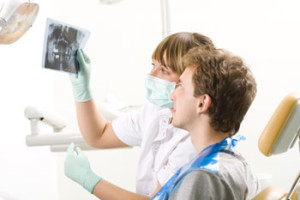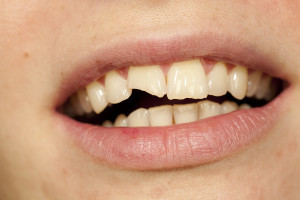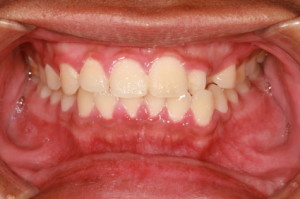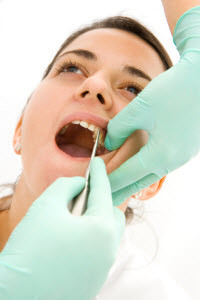Your mouth is very sensitive and swollen gums could mean a number of different scenarios. If you notice redness, inflammation and are experiencing any pain, even mild, it’s best to act quickly, in order to rule out the possibility of a serious situation.
It Could Be An Abscess
A tooth abscess can evolve with alarming speed, going from slight pain and swelling to dangerous infection within a matter of days. There are two forms of abscess you need to be wary of if you have swollen gums:
A Periodontal Abscess: This is an abscess of an area of your gums, most often between teeth. You may have inadvertently left food particles between your teeth without realizing it and this can lead to irritated, swollen gums and possibly an abscess. Also, when bacteria remains on the gum surface, it can spread inward, eventually reaching the bone. If you have a gum abscess, you may notice swelling and redness and will also likely be in considerable pain, particularly when the area is touched.
An Abscessed Tooth: This type of abscess is called periapical by dental professionals and it can be very serious. It’s the result of rotting in the tooth, which has extended to the nerve; it can also delve deeper, right into the bone. While the gums surrounding an abscessed tooth may be red and swollen, you might also only see damage on the tooth itself; however, an abscessed tooth is most frequently accompanied by pain.
Either type of abscess should be considered a significant health threat, as the infection can seep into the bloodstream. In rare cases, there may be no pain associated with the abscess, but it’s still crucial to seek treatment. Such an infection will continue indefinitely, without ever healing on its own.
You May Have Gingivitis
Gingivitis is unfortunately very common, with approximately 75 % of all adults afflicted. Frequently, it’s a result of improper brushing and you can see it develop as gums become swollen and red, followed by bleeding. Inflammation is simply the act of your body attempting to ward off the bacteria as it builds up in your mouth.
The good news is that many people can cure their own gingivitis, simply by brushing better, flossing and rinsing; however, since swollen gums can be caused by other, more serious conditions, it’s best to get an official diagnosis from your dentist before moving forward.
If you do have gingivitis, symptoms should subside within a week or so. Wait too long with this condition, though, and it could evolve into the more serious situation of preiodontitis, where you may even lose teeth completely.
Other Causes Of Swollen Gums
Since there can be so many reasons for gum swelling, redness and sensitivity, it’s important to involve your dentist in the investigation. Here are other possible causes you’re having these issues:
A Vitamin Deficiency: Just like other body parts and systems, your oral health depends on proper nutrition; you may be lacking in some important vitamin, such as C, as indicated by swollen gums.
Medication You’re Taking: If you’ve recently started taking a new medicine and noticed swelling of the gums simultaneously, the two may be linked. Check the label on the prescription or give your physician a call.
Sensitivity To Oral Care Products: Some ingredients are harsher than others, such as sodium laurel sulfate. These chemicals may instigate a reaction, including, but not limited, to sensitive or swollen gums. Any new product you’re using could be culpable.
Underlying Health Conditions: Poor gum health may be a reflection of a more serious underlying condition you’re facing. Diabetes, for example, may affect gums when not under control and heart disease may be present in people with gum problems.
Swollen gums can mean many things, from the very serious to the benign; however; it’s wise to begin your investigation at the dentist’s office, rather than try and figure out the cause yourself. Hopefully, it’s nothing major, but if it is, you need to address it as early as possible.
If you have swollen gums this could be the sign of a dental abscess which should be examined as soon as possible. Make an appointment with an Albuquerque dentist as soon as your gums become swollen to find out if you do, in fact, have an infection.
 There are certain dental issues that need to be treated with the same fast care as chest pains or other serious medical conditions, and an abscessed tooth is one of those. The problem is that an abscessed tooth is often mistaken for just being a tooth ache, and that can be a really serious mistake.
There are certain dental issues that need to be treated with the same fast care as chest pains or other serious medical conditions, and an abscessed tooth is one of those. The problem is that an abscessed tooth is often mistaken for just being a tooth ache, and that can be a really serious mistake.






